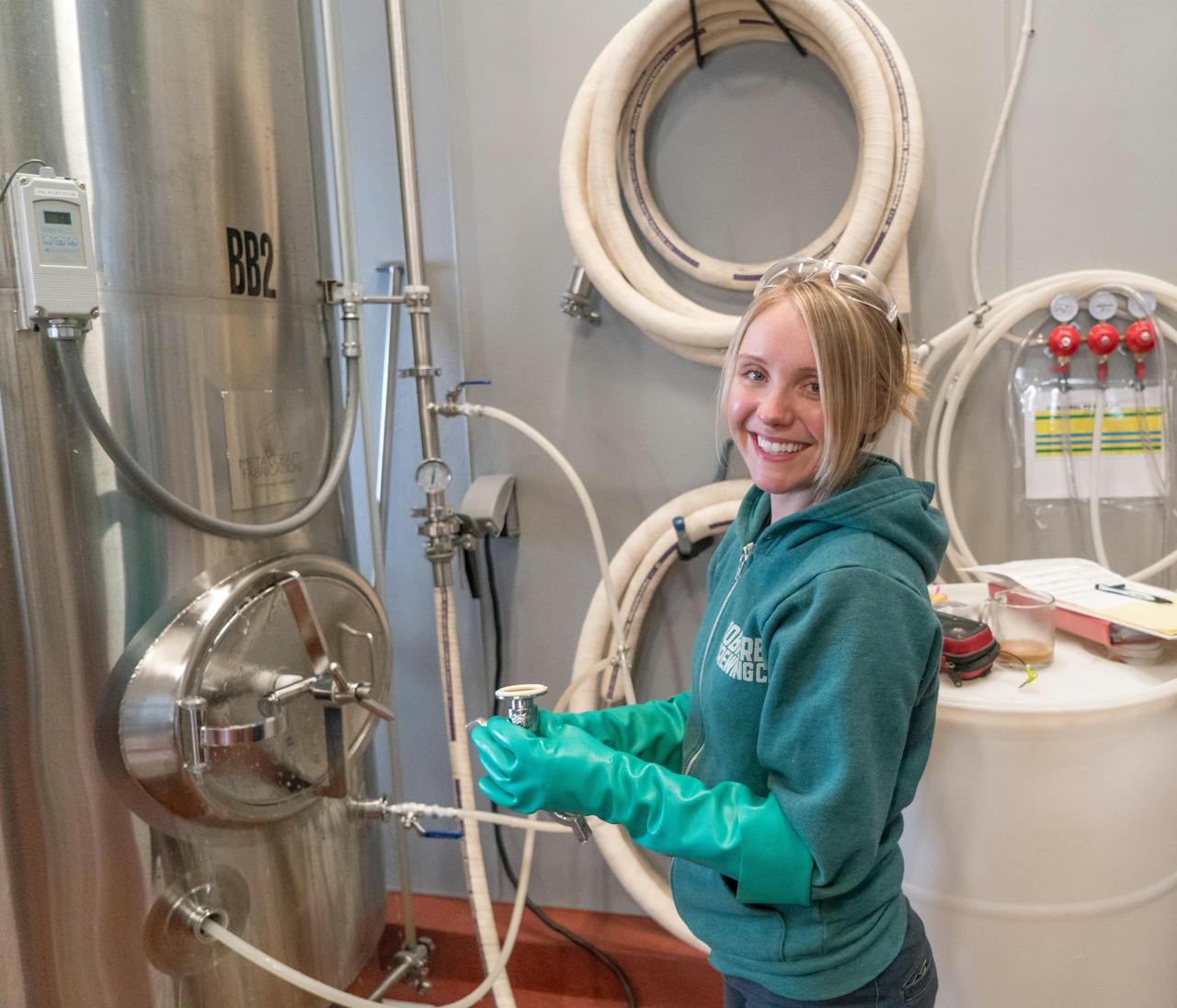Quality control in brewing is evolving, thanks to artificial intelligence. UK breweries are harnessing AI to refine their processes, ensuring consistency and excellence in every batch. This innovative technology not only enhances product quality but also streamlines operations and reduces waste. Embracing AI tools allows breweries to anticipate challenges, improve taste, and elevate customer satisfaction. Discover how these advancements are transforming the landscape of the brewing industry and setting new standards for quality.
Overview of AI Innovations in Quality Control for Breweries
The brewing industry has long relied on traditional methods for quality control, ensuring each batch of beer meets the high standards expected by consumers. Historically, this process involved manual inspections and taste tests, which, while effective, were time-consuming and subject to human error. Enter AI innovations—a game-changer in the realm of quality assurance for breweries.
Also to see : Unlocking Efficiency: Leveraging Data Analytics for Enhanced Production Processes in UK Breweries
AI technologies, such as machine learning and computer vision, are now being integrated into brewing processes. These advancements allow breweries to monitor various stages of production with unprecedented precision. For instance, AI systems can analyse fermentation data in real-time, identifying any deviations from the desired parameters. This ensures that any potential issues are addressed promptly, maintaining the quality of the final product.
The importance of quality assurance in beer production cannot be overstated. Consumers expect consistency in flavour, aroma, and appearance, and any deviation can lead to dissatisfaction and loss of brand loyalty. By employing AI innovations, breweries can not only enhance their quality control measures but also increase efficiency and reduce waste. This technological leap is not just about maintaining standards; it’s about elevating them, ensuring that every pint poured is perfect.
Also to see : Unlocking efficient hydrogen storage with vallourec's delphy
Key AI Technologies Transforming Brewing Quality Control
In recent years, the brewing industry has embraced AI technologies to revolutionise quality control processes. These advancements are not only enhancing efficiency but also ensuring the highest standards of production.
Machine Learning Algorithms
Machine learning algorithms play a crucial role in automating and optimising brewing processes. By analysing vast amounts of data, these algorithms can predict and adjust fermentation conditions, ensuring consistency in each batch. Unlike traditional methods, which rely heavily on human expertise, machine learning offers a level of precision and adaptability that is unparalleled. This automation reduces human error and allows brewers to focus on innovation and creativity.
Computer Vision Systems
Computer vision systems are another pivotal AI technology transforming quality control. These systems use cameras and sensors to monitor the appearance and colour of beer during production. They can detect anomalies that might be missed by the human eye, ensuring the product meets the desired standards. This technology not only speeds up the inspection process but also enhances accuracy and reliability.
Predictive Analytics Tools
Predictive analytics tools provide breweries with insights into potential production issues before they occur. By analysing historical data, these tools can forecast trends and deviations, allowing for proactive adjustments. This predictive capability ensures that quality is maintained throughout the production cycle, minimising waste and maximising efficiency.
Case Studies of AI Implementations in UK Breweries
In recent years, several UK breweries have embraced AI applications to revolutionise their production processes. These case studies highlight the tangible benefits and challenges faced during AI adoption.
One notable example is a renowned brewery in London, which integrated AI technologies to enhance its quality control systems. The implementation led to a significant reduction in production errors, increasing overall efficiency by 20%. By leveraging machine learning, the brewery could predict fermentation outcomes more accurately, ensuring consistent product quality.
Another case study involves a mid-sized brewery in Scotland, which utilised AI to optimise its supply chain management. This AI application improved inventory accuracy and reduced waste by 15%. The brewery’s management reported that the AI system provided real-time insights, allowing for better decision-making and resource allocation.
However, the journey was not without challenges. Many breweries faced initial hurdles in integrating AI with existing systems. The need for skilled personnel to manage AI technologies was a common lesson learned, emphasising the importance of staff training.
These case studies from UK breweries underscore the transformative potential of AI applications. While the benefits are clear, addressing implementation challenges is crucial for maximising the advantages of AI in brewing.
Benefits of Using AI in Quality Control
In the brewing industry, the benefits of AI are profound, especially in the realm of quality assurance. AI’s ability to enhance accuracy and consistency in quality assessments is unparalleled. Traditional methods often left room for human error, but AI technologies, such as machine learning and computer vision, ensure that each batch is scrutinised with precision, maintaining the highest standards.
Another significant advantage is the reduction in production costs and waste. By identifying potential issues early in the brewing process, AI systems help prevent costly errors and minimise waste. This proactive approach not only saves money but also supports sustainable practices, which are increasingly important to consumers and businesses alike.
Moreover, AI significantly speeds up the quality control process. Manual inspections can be time-consuming, but AI technologies can analyse data in real-time, allowing for immediate adjustments. This increased operational efficiency means breweries can produce more consistent products at a faster rate, meeting consumer demands without compromising on quality.
In summary, the integration of AI in brewing quality control offers numerous benefits. From enhancing accuracy and reducing costs to speeding up processes, AI is transforming the way breweries ensure quality, paving the way for a more efficient and reliable production environment.
Future Trends in AI for Brewery Quality Assurance
As the brewing industry continues to evolve, future trends in AI promise to further revolutionise quality control processes. These trends are not just about enhancing current methods but paving the way for unprecedented advancements.
Emerging Technologies on the Horizon
Emerging AI advancements like quantum computing and advanced neural networks are set to transform brewing quality control. Quantum computing could process complex brewing data at speeds previously unimaginable, leading to more precise quality assessments. Advanced neural networks, on the other hand, can improve pattern recognition, allowing for even more accurate predictions of fermentation outcomes.
Potential Impact on Brewery Operations
The integration of these future trends will likely streamline brewery operations significantly. Enhanced AI systems could automate entire quality control processes, reducing the need for manual intervention and allowing breweries to allocate resources more efficiently. This could lead to increased production capacity and improved product consistency, meeting growing consumer demands.
Challenges to Overcome for Wider Adoption
Despite the promising AI advancements, challenges remain. Breweries must address the high costs of implementing cutting-edge technologies and the need for skilled personnel. Continuous learning and adaptation are crucial to stay competitive. As AI’s role in brewing expands, breweries must be proactive in adopting these innovations to maintain their edge in the market.






